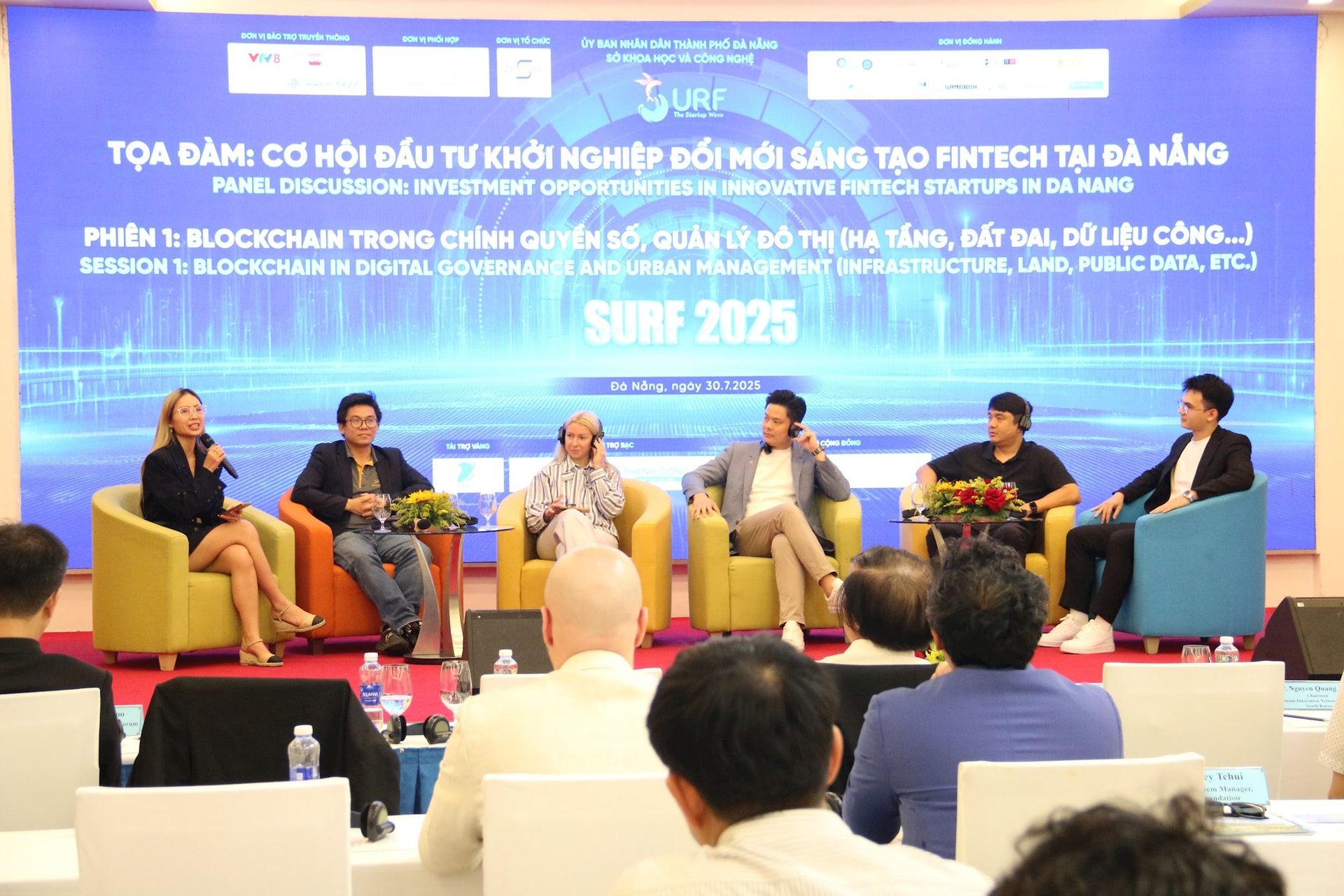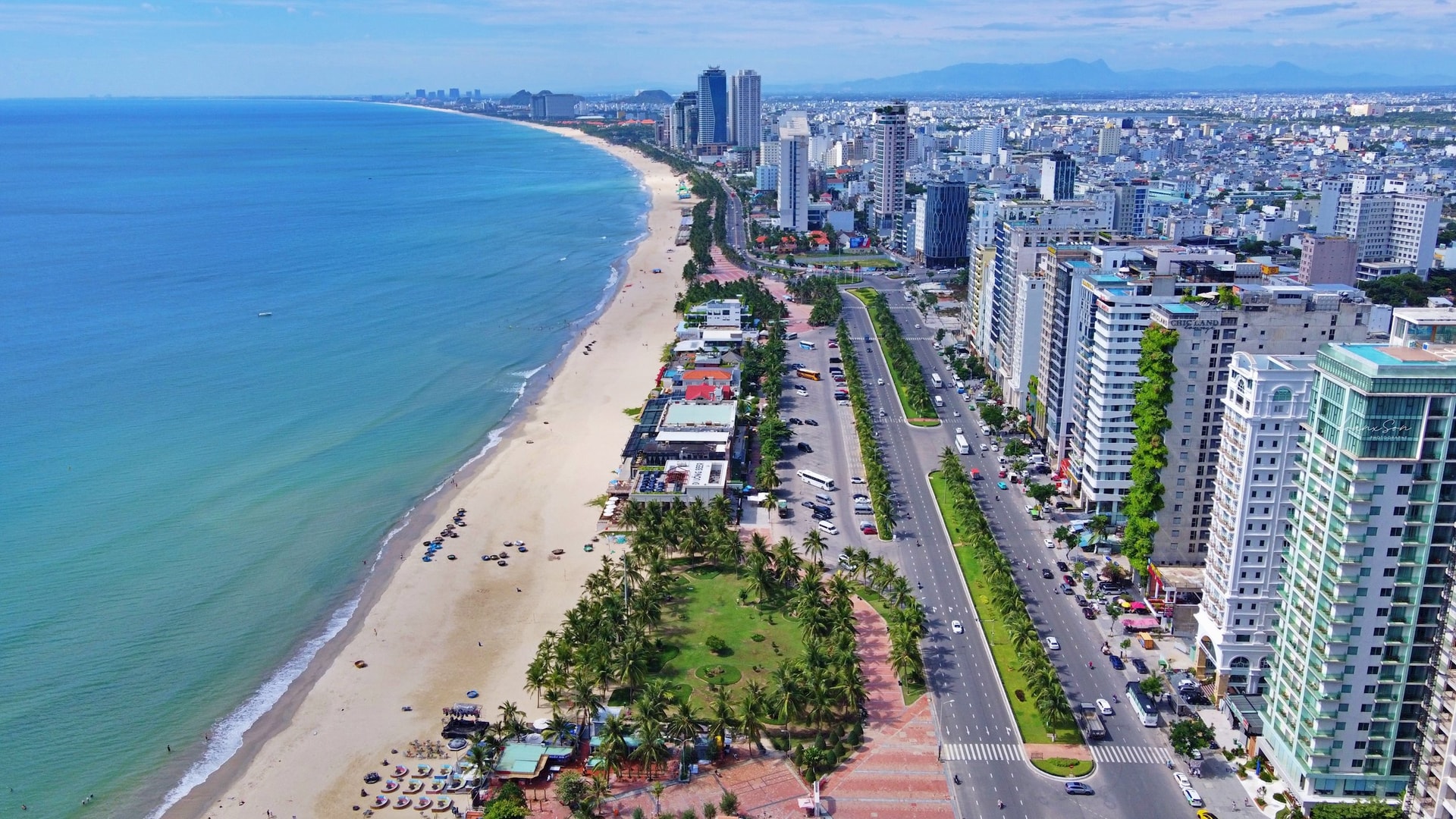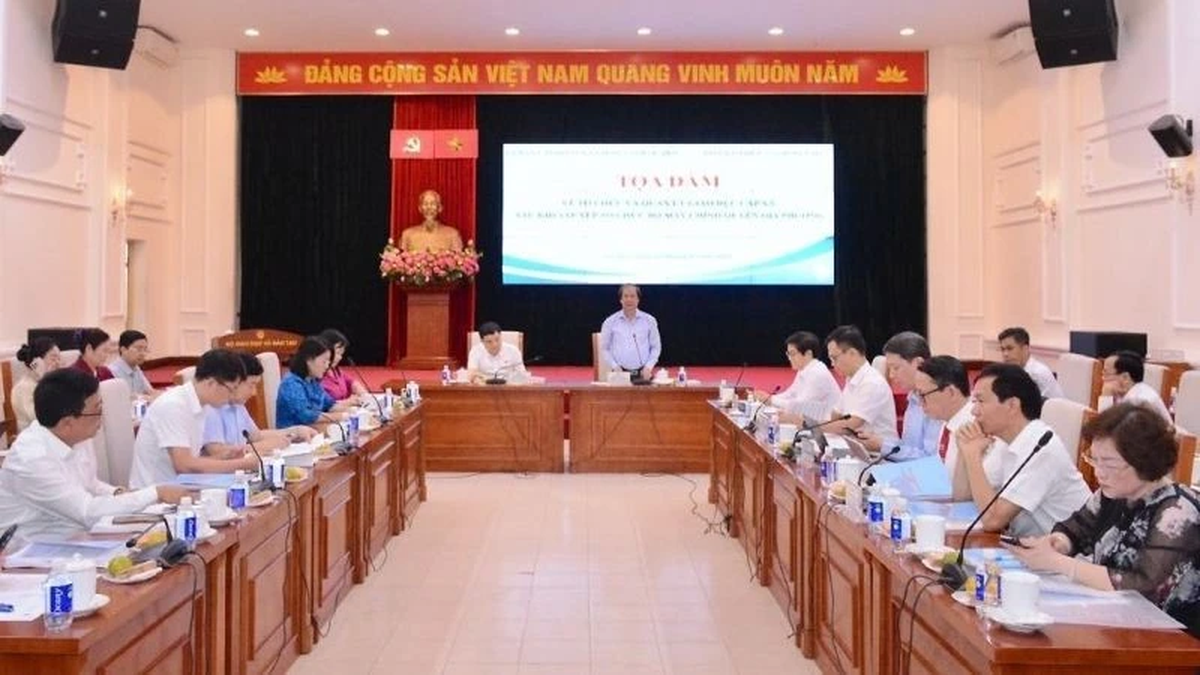
Blockchain runs cities
In his presentation on the global trends of blockchain and digital assets at SURF 2025, Mr. Tran Huyen Dinh, Chairman of the Fintech Application Committee, Vietnam Blockchain Association, made a decisive but convincing statement: “If previous generations of cities relied on electricity - water - transportation as hard infrastructure, then new generations of cities need blockchain, AI and open data as soft infrastructure”.
According to Mr. Dinh, the core value of blockchain is the ability to program processes, dematerialize data and disperse operational responsibility according to a publicly verifiable standard.
“When public data, from construction permits, public land maps, budgets... are recorded on an open blockchain, any editing, intervention or deviation will be detected immediately. That is the way for us to clean up public operations without the need for long-term campaigns against negativity,” said Mr. Dinh.

A representative of HVA Group, a technology company in the Central region, said that they have applied this technology in many localities, from digital asset trading floors including tokenized real estate, stocks, ESG assets... to DeFi payment platforms applied to SMEs, and especially internal blockchain systems supporting data retrieval of jewelry, urban assets and public financial credit.
“The operating model does not require state budget, in the form of public-private partnership, and can be piloted in areas such as public asset auctions, land traceability, and carbon credit management, areas that were previously difficult to access transparently,” said a representative of HVA Group.
Data as the foundation of smart cities
Looking back at the implementation steps of Singapore, South Korea, Switzerland or more recently Hong Kong, one common point that is easy to see is that the governments of these cities all started the digital transformation process not by “digitalizing everything” but by redesigning the underlying data structure such as standardizing public data, choosing the right technology and creating a sandbox to test each application in practice before replicating it.

At a panel discussion on blockchain in urban governance, Anastasia Kalinina, founder of the reState Foundation, shared her global experience working with cities in Northern Europe: “No one expects blockchain to solve every problem. But if there is one thing this technology does best, it is restore trust between citizens and their governments through the ability to publicly verify every decision made by the State, from land records, to tender documents, to budget allocations.”
According to Anastasia Kalinina, distributed ledger systems (DLT) not only create official records but also combat “rewriting the past”, which is one of the root causes of distrust in urban governance.
A transparent city is not a place where there are no mistakes, but a place where every decision, right or wrong, leaves a trace and can be checked, challenged, and evaluated with real data. That is what blockchain can do better than any previous governance tool.
Technically, Mr. Le Anh Quoc, Operations Director of AlphaTrue Solutions, said that the company is building a “public verification toolkit” that allows local authorities to deploy a public verification system on budget data, construction permits and public land through an online interface, which can be integrated into the Public Service Portal or smart urban applications.
In the current context of Da Nang, when the city is being selected to pilot many digital transformation models, it is reasonable and timely that blockchain is emphasized as a basic infrastructure.
This infrastructure is not to replace policies, but to enhance policy effectiveness and build a transparent, intelligent, and trustworthy government.
Source: https://baodanang.vn/kien-tao-do-thi-thong-minh-tu-ha-tang-so-3298449.html



































































































Comment (0)